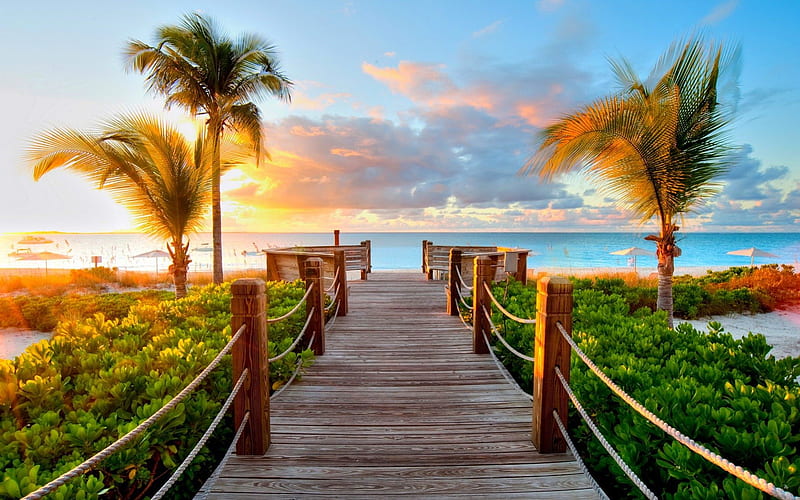The Caribbean is a different world
The Caribbean is a region that captures the imagination with its breathtaking landscapes, vibrant cultures, and rich history. It is a place where the natural beauty is unparalleled, and the way of life is distinctively unique. This article explores why the Caribbean is often considered a different world, delving into its diverse aspects that make it so special.
The Natural Splendor
Pristine Beaches and Crystal-clear Waters
The Caribbean is renowned for its stunning beaches, which are some of the best in the world. With their powdery white sands and turquoise waters, these beaches are a paradise for sun-seekers and water enthusiasts. Each island offers a unique coastal experience, from the serene shores of Anguilla to the bustling beaches of Barbados. The clarity of the water is unmatched, providing perfect conditions for snorkeling and diving, where you can explore vibrant coral reefs and encounter a myriad of marine life.
Diverse Ecosystems
Beyond the beaches, the Caribbean is home to a variety of ecosystems that are equally captivating. The lush rainforests of Dominica, the dramatic volcanic landscapes of St. Vincent and the Grenadines, and the arid deserts of Aruba showcase the region's ecological diversity.
These environments are not just beautiful but also crucial for the biodiversity they support, housing numerous endemic species of flora and fauna.
Rich Cultural Heritage
A Melting Pot of Influences
The Caribbean's cultural landscape is a vibrant tapestry woven from a multitude of influences. The region's history of colonization, slavery, and migration has created a unique blend of cultures, languages, and traditions.
Each island has its own distinct cultural identity, shaped by African, European, Indigenous, and Asian influences.
Festivals like Trinidad's Carnival and Jamaica's Reggae Sumfest highlight this cultural fusion, offering visitors a chance to experience the region's music, dance, and culinary delights.
Language and Communication
While English is widely spoken in the Caribbean, the region is also home to a variety of other languages and dialects. French, Spanish, Dutch, and Creole languages are prevalent in different parts of the Caribbean, reflecting its colonial past. This linguistic diversity adds another layer to the region's unique identity, enriching the travel experience as visitors encounter different languages and forms of expression.
Unique Way of Life
Island Time and Laid-back Lifestyle
One of the most distinctive aspects of the Caribbean is its relaxed pace of life. Often referred to as "island time," this laid-back approach to life is a stark contrast to the fast-paced world many visitors come from. In the Caribbean, there is a greater emphasis on enjoying the present moment, fostering a sense of community and well-being.
This slower pace allows for a deeper appreciation of the simple pleasures, whether it's savoring a local dish, listening to the waves, or engaging in a friendly conversation with a local.
Strong Community Bonds
Community and family play a central role in Caribbean society. The sense of community is palpable, with locals often coming together to celebrate, support each other, and maintain traditions.
This strong social fabric is evident in the region's festivals, markets, and everyday interactions.
Visitors to the Caribbean often remark on the warmth and hospitality they experience, which is a testament to the deep-rooted communal values of the islands.
Historical Significance
Colonial History and Its Legacy
The Caribbean's history is marked by periods of colonization by European powers, each leaving an indelible mark on the region's architecture, culture, and society.
The remnants of colonial forts, plantations, and buildings are scattered across the islands, telling the story of a turbulent past.
These historical sites provide a window into the Caribbean's complex history, from the era of exploration and conquest to the struggles for independence and self-determination.
The Impact of the Slave Trade
The transatlantic slave trade had a profound impact on the Caribbean, shaping its demographic and cultural landscape. The legacy of slavery is still evident in the region's social and economic structures.
However, the resilience and creativity of the Caribbean people have transformed this painful history into a source of strength and cultural richness.
The music, dance, and religious practices that emerged from this period have become integral to the Caribbean's identity and are celebrated as symbols of endurance and cultural pride.
Conclusion
The Caribbean is indeed a different world, a place where natural beauty, cultural diversity, and a unique way of life come together to create an extraordinary experience. Its pristine beaches, rich cultural heritage, relaxed lifestyle, and historical significance make it a region like no other. Whether you're seeking adventure, relaxation, or a deeper understanding of a different way of life, the Caribbean offers an unparalleled journey into a world that is both captivating and profoundly enriching.



















































